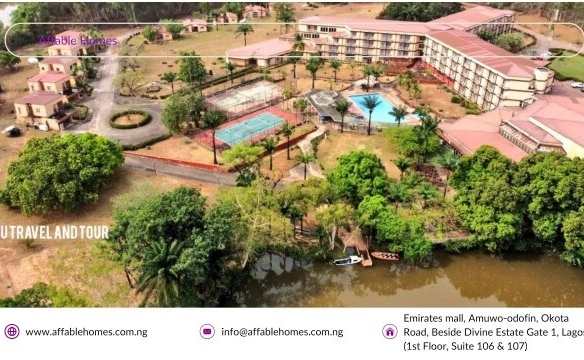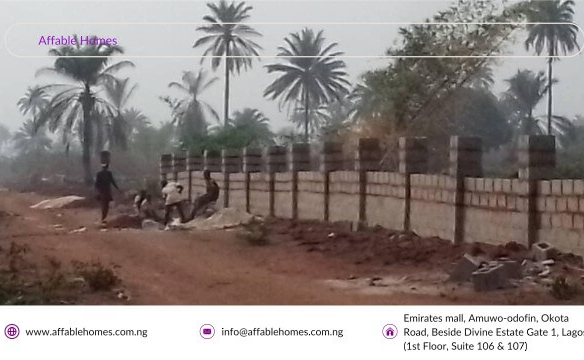Buying land in Nigeria is a big deal, and understanding land titles is one of the most important things you need to do before making a purchase. If you’ve been searching for land, you’ve probably come across terms like freehold, Certificate of Occupancy (C of O), and Governor’s Consent.
But what exactly is freehold land, and why does it matter?
This guide will break down everything you need to know about Freehold Land Title in Nigeria—what it means, how it works, its advantages, and what you need to do to secure your ownership legally.
What is Freehold Land?
Freehold land in Nigeria refers to land that is owned outright, without time limitations or government control over the tenure. This means the owner has full ownership rights indefinitely and can transfer, lease, or develop the land without seeking government approval.
In simple terms, if a land is freehold, the owner has permanent ownership unless they decide to sell or transfer it. Unlike government-controlled land, freehold land is not subject to annual lease renewals or Governor’s Consent before it can be sold or transferred.
How Freehold Land Title Works in Nigeria
To understand freehold land ownership, you need to be familiar with Nigeria’s land tenure system.
The Land Use Act and Its Impact on Freehold Land
Before 1978, individuals, families, and communities could own land in perpetuity. However, the Land Use Act of 1978 transferred all land ownership to the government, with state governors acting as trustees.
This means that all land technically belongs to the government, and individuals or organizations can only be granted a leasehold (usually for 99 years).
However, some lands—especially those that were already privately owned before the Land Use Act—remain under freehold ownership. These lands are typically passed down through families or acquired through traditional land tenure systems.
Also Read:
- 10 Questions You Should Ask Before You Buy Land in Epe
- What is the Difference Between Excision and Governor’s Consent in Lagos?
- Different Land Sizes Available in Most Estate Properties in Lagos
Key Features of Freehold Land in Nigeria
The following are the main features of freehold land titles in Nigeria:
- Ownership is permanent – You don’t need to renew a lease or pay annual ground rent to the government.
- No governor’s consent is required for transfer – Unlike leasehold land, you can sell or transfer freehold land without seeking approval from the state governor.
- Can be inherited and passed down – Freehold land can be kept within a family for generations without interference from the government.
- Limited government control – While land in Nigeria is generally under government regulation, freehold land is not directly controlled by the government unless acquired for public use.
Where Can You Find Freehold Land in Nigeria?
Not all lands in Nigeria have a freehold title. Some common locations where you can find freehold land include:
- Rural areas and villages – Many lands in rural areas are still under traditional ownership structures and have never been converted to government-controlled lands.
- Land owned before the 1978 Land Use Act – Any land privately owned before 1978 without interference from the government often remains freehold.
- Certain private estate developments – Some estate developers acquire large pieces of land with freehold status and sell smaller plots to individuals.
Advantages of Freehold Land in Nigeria
Freehold land offers several benefits that make it attractive for investors and homeowners:
1. Full ownership rights
Unlike leasehold land, where the government can revoke ownership after the lease expires, freehold land belongs to the owner permanently. You don’t have to worry about renewal fees or lease expiration.
2. No government lease or rent payments
Owners of leasehold land must pay annual ground rent to the government. Non-compliance in ground-rent payment can lead to ugly consequences. However, freehold landowners don’t have to pay such fees, making it a cost-effective long-term investment.
3. Easier to transfer or sell
Because no Governor’s Consent is required, freehold land is easier to sell or pass on to heirs. This makes it a preferred option for families looking to pass down property through generations.
4. Greater flexibility for development
Since the land is not under strict government lease conditions, owners have more freedom to develop it without excessive restrictions.
Disadvantages of Freehold Land
Despite its advantages, freehold land also comes with some challenges:
1. Often lacks proper documentation
Many freehold lands, especially in rural areas, have no registered titles like a Certificate of Occupancy (C of O) or Governor’s Consent. This can make it difficult to prove ownership if there’s a dispute.
2. Can be more vulnerable to disputes
Because freehold lands are often owned by families or passed down through generations, multiple claims on the same piece of land are common. Always conduct proper checks before buying.
3. Less common in urban areas
Most urban lands in major cities like Lagos, Abuja, and Port Harcourt are leasehold because they are under government control. Finding genuine freehold land in these areas can be challenging.
How to Secure Freehold Land Legally
If you’re buying freehold land, here’s how to ensure legal ownership and protect yourself from future issues:
1. Conduct Due Diligence
Before buying any freehold land, verify its status by:
- Checking the land’s history and ownership records.
- Engaging a lawyer to verify the land’s documentation.
- Speaking to locals and community leaders to confirm there are no disputes or multiple claims on the land.
2. Obtain a Deed of Assignment
A Deed of Assignment is a legal document that transfers ownership of land from the seller to the buyer. Ensure that:
- The deed is signed by the rightful owner(s).
- It clearly states the terms of sale.
- It is stamped and registered at the land registry.
3. Register the Land with the Government
Even though freehold land is not controlled by the government, it is still advisable to register your ownership. This includes:
- Obtaining a Certificate of Occupancy (C of O) to give legal backing to your ownership.
- Getting a Survey Plan that maps out your land and ensures it does not fall under government acquisition.
4. Secure a Governor’s Consent (If Necessary)
Although freehold land does not require Governor’s Consent for ownership, obtaining it can help protect your land from future legal disputes.
Conclusion
Freehold land is one of the best types of land you can buy in Nigeria because it gives you full, permanent ownership without government lease restrictions. However, proper due diligence is critical before making a purchase.
If you’re considering freehold land, verify ownership, secure proper documentation, and register your land to avoid future disputes. With the right approach, buying freehold land can be a safe and rewarding investment that lasts for generations.
Also Read:
- Why Women Should Invest in Real Estate in Nigeria
- How to Retire Young and Rich with Real Estate Investing in Nigeria
- Why Location Matters When Investing in Real Estate in Nigeria
Frequently Asked Questions About Freehold Land in Nigeria
1. Can freehold land be revoked by the government?
Yes, but only if the land is acquired for public interest (e.g., building roads, hospitals, or schools). In such cases, the government must provide compensation to the owner.
2. Is freehold land better than leasehold?
It depends on your needs. Freehold land offers full ownership, while leasehold land is government-controlled but often comes with clearer documentation.
3. Can I develop freehold land without government approval?
Yes, but you still need to follow local building regulations and obtain the necessary permits for construction.
4. Can I get a mortgage on freehold land?
Most banks require a Certificate of Occupancy (C of O) before approving mortgages. If the freehold land lacks a registered title, securing a loan may be difficult.
To explore any of our real estate investment packages like land banking, retirement plan, kids education investment plan, trade apprenticeship plan or if you want to purchase some plots where you will have residential or commercial buildings, send an email to us at info@affablehomes.com.ng or call +2349134056630.





